- Need help with the virtual platform? sylvesterctc@getvfairs.io
Cancelling your registration will remove your access to the event. If you proceed, you will no longer be able to participate or access event-related materials.
Deleting your account will remove your access to the event.
Dr. Alderuccio is a clinical investigator who specializes in the study and treatment of patients with lymphoma. His research efforts focus on drug development and testing risk-adapted approaches based on PET/CT and circulatory biomarkers for treatment selection. He is a member of the Translational and Clinical Oncology Research Program at the University of Miami Sylvester Comprehensive Cancer Center, where he is interested in utilizing quantitative image analysis for risk stratification and evaluation of novel therapies in lymphoma. He received his MD from Instituto Universitario de Ciencias de la Salud—Fundación Barceló in Buenos Aires, Argentina, before deciding to move to the United States to pursue a career in clinical research and drug development in oncology.
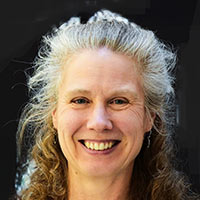
Dr. Hall is a chartered statistician with over 25 years’ experience in the design, methodology and analysis of oncology clinical trials. She leads the ICR-CTSU’s portfolio of research in genitourinary and head and neck cancers with focus on the design and analysis of radiotherapy clinical trials. She is a previous co-chair of the National Clinical Research Institute (NCRI)’s Clinical and Translational Radiotherapy Research Group (CTRad) workstream on Phase 3 Trials and Methodology and led the Cancer Research UK funded Advanced Radiotherapy Network’s methodology workstream. She sits on CTRad’s Proton Beam Clinical Trial Strategy Group and the National Institute for Health and Care Research funded National Radiotherapy Trials Quality Assurance Management Group. She is an honorary member of the Royal College of Radiologists and an affiliate member of the European Society for Radiation and Oncology (ESTRO). Professor Hall has served on funding committees for Marie Curie Research and Yorkshire Cancer Research and is vice chair of Cancer Research UK’s Clinical Research Monitoring Committee. She sits on the independent data monitoring and trial steering committees for a number of international and national clinical trials.
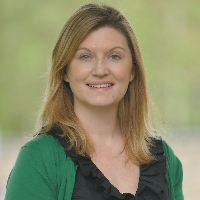
Dr. Heckman-Stoddard received a Doctor of Philosophy degree in Molecular and Cellular Biology at Baylor College of Medicine focusing on the intersection of Rho and IGF signaling in mammary gland development and breast cancer before joining the National Cancer Institute as a Cancer Prevention Fellow. During the fellowship she completed her master's in public health at the Johns Hopkins Bloomberg School of Public Health working with the Institute for Global Tobacco Control and the Evidence-Based Practice Center. During her time at NCI as a fellow, she focused on breast cancer prevention research including preclinical development and early clinical trials.
Dr. Heckman-Stoddard's research focuses on drug development for breast cancer prevention and biomarker development. She is particularly interested in local delivery of agents, alternate dosing strategies, biomarkers of efficacy to reduce the number needed to treat, and targeting of stem cells. She serves as program director for the Early Phase Breast Cancer Prevention Clinical Trials grants portfolio and scientific monitor of early phase breast cancer clinical trials within the NCI Division of Cancer Prevention Early Phase Prevention Consortia. Dr. Heckman-Stoddard is also the NCI lead for an NCI-NIDDK collaboration examining cancer incidence within the Diabetes Prevention Program Outcomes Study a randomized study of metformin, lifestyle intervention, versus placebo.
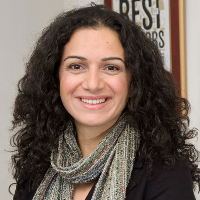
Dr. Iasonos has been at MSKCC since 2005, after working about three years for Bristol Myers Squibb in Oncology. She has collaborated primarily with investigators studying ovarian cancer and also with investigative teams studying bladder cancer, lymphoma, and health outcomes. Through her collaborations with investigators in gynecology (Departments of Surgery, Medicine, and Pathology) she is exploring various biomarkers and assessing relationships to histology, metastasis, and clinical outcome. She has been involved in vaccine trials as a second line therapy in ovarian cancer patients, and identifying valid endpoints for maintenance trials. Her methodological interests focus on model-based designs that guide the dose escalation in phase I trials, and in the past few years she has focused on the design of early-phase trials that involve dose expansion cohorts or basket trials. She is currently an Associate Editor for JCO, a Society of Clinical Trials elected board member, and a co-chair of Research Council at Memorial Sloan Kettering.
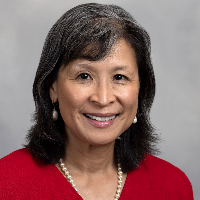
Dr. Le received her medical school and radiation oncology training at University of California, San Francisco. She joined Stanford in 1997. Her research focuses on translating laboratory findings to the clinic and vice versa in head and neck cancer (HNC), specifically in tumor hypoxia, radiation resistance, Galectin-1, and salivary gland stem cells. Clinically, she has led multicenter phase II and III clinical trials, testing the addition of novel drugs as radiosensitizer or radioprotector with chemoradiotherapy in HNC. She has received grant support from ASCO and ASTRO, as well as P01, R01, and R21 grants from the NIH. She was inducted into the Fellowship of the American College of Radiology (FACR), the American Society of Therapeutic Radiology and Oncology (FASTRO) and the Institute of Medicine/National Academy of Medicine (IOM/NAM). She was also honored with the Caltech Distinguished Alumni Award in 2015. Administratively, she is the Co-Director of the Radiation Biology Program at the Stanford Cancer Institute and the Group Chair of the NRG Oncology, which is the largest group in the NCI National Clinical Trial Network (NCTN). She used to chair the Head and Neck Disease Site Committee of NRG Oncology before becoming the group chair. She has served as a reviewer for several cancer related journals and NIH study sections. She has also been actively involved in many committees of national and international organizations such as ASTRO, ASCO, AACR, and ARS.
.png)
Dr. Mallick is a radiation oncologist at Tata Medical Center, Kolkata, the largest cancer hospital in Eastern India. He specializes in head and neck, genitourinary, and gastrointestinal cancers. He has designed and served as a principal or co-principal investigator in several multi-institutional cancer clinical trials. He has been a member of Data Security Monitoring Committees for regulatory trials and serves as the lead of his institutional ethics committee. He has taught about clinical trial design and interpretation in several international courses.

Dr. Shah is a medical oncologist on the breast, gynecologic, and supportive oncology team within the Office of Oncologic Diseases at the FDA. She completed her internal medicine residency at Vanderbilt University Medical Center and her medical oncology fellowship at the Sidney Kimmel Comprehensive Cancer Center at Johns Hopkins, including one year as chief fellow. She also obtained a master’s degree in health sciences through the Johns Hopkins Bloomberg School of Public Health. Her interests include improving palliative and supportive care for patients with cancer, and she maintains a supportive oncology clinic at Johns Hopkins.
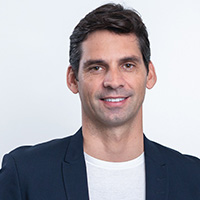
Dr. Werutsky is the Chairman of Latin American Cooperative Oncology Group (LACOG) and Medical Oncologist of the Breast Cancer Program, Hospital Moinhos de Vento, Porto Alegre Brazil. He is the member representative of LACOG in the Breast International Group (BIG), Belgium and SWOG Cancer Research Network, US. Werutsky is member of the breast cancer Faculty of the European Society of Medical Oncology (ESMO). Former medical research fellow at the European Organisation for Research and Treatment of Cancer (EORTC) 2008-2011 working in the breast and gastrointestinal cancer groups. Also, past fellow of the Flims workshop on cancer research (EORTC – NCI - AACR), Flims, Switzerland and of the ESMO translational research unit visit, Charité – Universitätsmedizin Berlin, Berlin, Germany. Graduated in Medicine at Pontifícia Universidade Católica do Rio Grande do Sul (2003), specialization in Internal Medicine (2006) and Medical Oncology (2008) at Hospital São Lucas PUCRS, Porto Alegre, Brazil and PhD (2021) in Medicine at Pontificia Universidade Catolica do Rio Grande do Sul (PUCRS), Porto Alegre, Brazil. He is member of the American Society of Clinical Oncology (ASCO), European Society of Medical Oncology (ESMO) and Sociedade Brasileira de Oncologia Clínica (SBOC). Areas of interest are breast cancer research, collaborative groups, drug development, and methods in clinical trials.

Dr. Zhao completed bachelor’s and master’s degrees in Computer Science & Engineering with a focus on Intelligent Systems at the University of Michigan. He then completed his MD at the University of Michigan Medical School. After a transitional year internship at Beaumont Hospital – Dearborn, he returned to the University of Michigan for residency training in radiation oncology. Under the American Board of Radiology’s Holman Pathway, he led multiple cancer genomics and biomarker studies under the mentorship of Dr. Felix Feng. As a physician-scientist, his clinical focus is on the treatment of patients with GU malignancies. His independent translational research laboratory focuses on using advances in sequencing and computational techniques to develop biomarkers of treatment response and resistance, primarily in prostate cancer. Dr. Zhao co-directs the University of Wisconsin Carbone Cancer Center Circulating Biomarker Core with Dr. Josh Lang, where they work on translating liquid biopsy technology into the clinic.
Guest Speakers


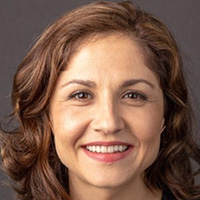


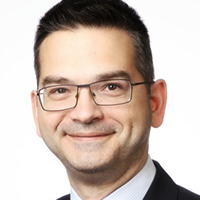
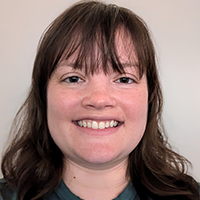
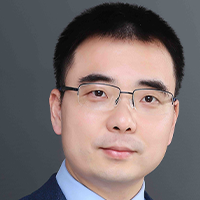
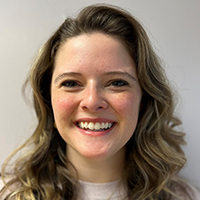


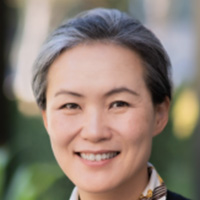
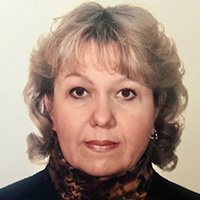
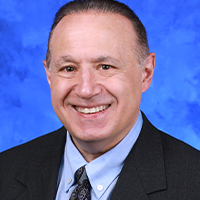
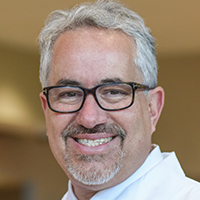
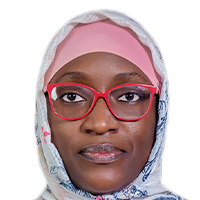
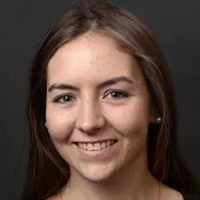

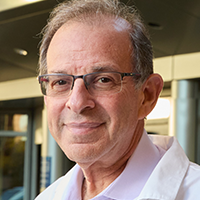
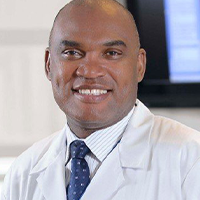
As a translational biostatistician, Dr. Hu specializes in advancing evidence-based research through innovative statistical applications. His work focuses on optimizing cancer treatments, extending patient survival, and improving quality of life. His expertise includes survival analysis, prognostic and predictive modeling, and the development of novel statistical methods to improve the design, conduct, and analysis of clinical trials.
Dr. Hu serves as a Senior Statistician for NRG Oncology, a national network conducting practice-changing oncology research funded by the NCI under the National Clinical Trials Network (NCTN). In this role, he has been instrumental in designing and co-leading numerous pivotal oncology clinical trials, particularly in lung cancer and multi-modality treatments. Notable examples include RTOG-0617 and RTOG-1308 for locally advanced non-small cell lung cancer, NRG-LU002 for oligo-metastatic NSCLC, and NRG-LU005 for limited-stage small cell lung cancer.
In addition to his research, Dr. Hu actively contributes to the academic community through editorial and advisory roles. He serves as an Editorial Board Member for the Journal of Clinical Oncology, Statistical Advisor for Nature Medicine, Associate Editor for Clinical Trials: Journal of the Society for Clinical Trials, and Methodology Editor for the International Journal of Radiation Oncology, Biology, Physics (IJROBP). In these roles, he advances statistical methodologies and ensures the dissemination of high-quality research. Additionally, he is a chartered member of the Clinical Oncology (CONC) Study Section at the NIH and participates in numerous grant selection committees and panels.
Dr. Hu is deeply committed to education and mentorship. He advises graduate students and postdoctoral researchers while co-leading the Survival, Longitudinal, and Multivariate (SLAM) Data Working Group in the Department of Biostatistics. As Associate Director of Education in the Division of Quantitative Sciences, he leads training programs that equip oncology trainees and junior investigators with advanced statistical tools and methods to conduct impactful cancer research. He is also an invited faculty member of the AACR/ASCO Methods in Clinical Cancer Research (Vail) Workshop.
Dr. Hu earned his PhD and MS in Biostatistics from the University of Michigan, Ann Arbor, and a BE in Bioengineering from Shanghai Jiao Tong University, China. This strong foundation in biostatistics and bioengineering has propelled his impactful career in advancing oncology research and education. He holds joint appointments in the Department of Radiation Oncology and Molecular Radiation Sciences at JHSOM and the Department of Biostatistics at the Bloomberg School of Public Health.
Dr. Voigt is a graduate of the State University of Haiti School of Medicine. He completed his residency training in Internal Medicine and fellowship training in Pulmonary Disease at New York Methodist Hospital and fellowship training in Critical Care Medicine at Memorial Sloan Kettering Cancer Center (MSK). He holds a Master of Bioethics degree from Columbia University and board certifications in Internal Medicine, Pulmonary Disease, Critical Care Medicine, and Hospice and Palliative Medicine. He is an Associate Professor of Medicine in Clinical Anesthesiology and of Clinical Medicine in Medicine at the Weill Cornell Medical College. At MSK, he chairs the Ethics Committee, and he is an Attending Physician and Member with privileges in the Department of Medicine and in the Department of Anesthesiology, Pain and Critical Care Medicine. Prior and current research interests and publications include decisional capacity for patients with cancer, end of life care, provision of cardiopulmonary resuscitation and life-sustaining therapies for critically ill patients with cancer, advance directives, ethical issues surrounding artificial intelligence and predictive models, decision-making processes for critically ill patients with cancer, and ICU-related complications such as delirium.
As Director for the Human Subject Research Office (HSRO), Ms. Viamonte oversees the review of human subject research studies, the regulatory team that conducts HSR reviews, the five Institutional Review Boards (IRBs), and several compliance and training initiatives. She started at the University of Miami in 2002 at Medical Human Resources, where she was the recruiter for temporary staffing, and joined HSRO in 2005. She is well versed in the areas of IRB Operations, Research Compliance, Personnel Matters, Conflict Resolution, and Project Management. She is the accreditation contact for the University of Miai through the Association for the Accreditation of Human Research Protection Programs (AAHRPP). She also serves as a site visitor/reviewer for AAHRPP. She earned her undergraduate and graduate degrees from the University of Miami.
Mr. Perez is a Clinical Research Data Specialist (CRDS) for the Phase 1 Clinical Trials program at Sylvester Comprehensive Cancer Center in Miami. Born and raised in Miami, he developed a deep interest in the life sciences from an early age. He earned a Bachelor of Applied Science with a focus in Biology, which laid the foundation for his career in clinical research. In his current role, Mr. Perez supports the management and coordination of early-phase clinical trial data, playing a key part in bringing innovative cancer treatments from the lab to the clinic. He is proud to contribute to cutting-edge research at one of the nation’s top cancer centers and to serve the community he has always called home. Dedicated to continued growth in the field, Mr. Perez is passionate about improving patient outcomes and making a lasting impact through his work in the early stages of cancer treatment development.
Dr. Paidas's career in medicine has focused on women’s health with special emphasis on blood disorders, reproduction, pregnancy complications, and the latter’s impact on health and disease. His activities span direct patient care, translational research, and clinical trials.
Dr. Paidas is recognized as international authority in hemostasis disorders and women’s health. He has authored or co- authored 180 peer reviewed articles and his work is published in a variety of scientific and clinical journals including PNAS, Pharmacology & Therapeutics, Cell Death and Differentiation/Nature, and The Lancet. He has authored one book and 50 book chapters, 186 abstracts, and has given 340 presentations or courses. His research has been supported by federal agencies, including NIH, NHLBI, NICHD and NIAID, non-federal entities and foundations. He was the principal investigator and steering committee chair of the largest preterm preeclampsia treatment trial completed in the USA (PRESERVE-1). This multicenter (23 sites) trial addressed whether maternal administration of recombinant antithrombin prolongs gestation in preterm preeclampsia. Dr. Paidas is multiple Principal Investigator of Miami ECHO: A diverse Cohort of Mothers, Children, and Fathers in Miami-Dade County, a seven year, $23.4 million NIH study which established a new ECHO cohort examining pre- and perinatal social environment and placental genome influences on children’s neurodevelopment and positive health.
Dr. Paidas received his medical degree from Tufts University School of Medicine in 1987 and completed his internship and residency in Obstetrics and Gynecology in 1991 at Pennsylvania Hospital. In 1993, Dr. Paidas completed a Fellowship in Maternal Fetal Medicine at the Mount Sinai School of Medicine in New York. In 2013, Dr. Paidas was awarded a Master of Arts, Honorary Degree, from Yale University, where he was on faculty for 16 years. Dr. Paidas joined the University of Miami Miller School of Medicine in November 2018 and has expanded clinical, research and academic enterprises. He holds a secondary appointment in the Department of Biochemistry and Molecular Biology.
Dr. Mustapha is a Gynecologic Oncology fellow and researcher at the Ahmadu Bello University Teaching Hospital, Zaria, Nigeria. She has applied lessons from her past participation in the Design and Management of Cancer Clinical Trials Course three clinical trials she is involved with at her hospital. She is currently collaborating with researchers from the University of Miami on a clinical trial for patients with ovarian cancer.
Ms. McCullough is currently the Director of the Investigator Initiated Trial Services unit at the University of Miami Miller School of Medicine. The unit provides support to University of Miami investigator-initiated clinical trials conducted under an IND or IDE for FDA submissions, monitoring, safety management, data management and project management. Prior to re-joining the University of Miami in May 2022, Ms. McCullough worked at Nicklaus Children’s Health System, where in her final three years she served as the Director of the Research Institute. Ms. McCullough has 24 years of research experience clinical research (protocol writing, operations/ coordination, regulatory, monitoring and compliance), laboratory research, and grants management (applications/pre-award and post-award financial management). She earned a BS in Microbiology and a Master of Science in Molecular Biology from Louisiana State University. She has been a Certified Clinical Research Professional since 2005.
Dr. Bas is a Clinical Research Pharmacist at the Sylvester Comprehensive Cancer Center at the University of Miami. She has over two decades of expertise spanning clinical pharmacology, translational research, and drug safety. She holds a PhD in Pharmacology and a Bachelor of Pharmacy from the University of Valencia, Spain. Dr. Bas leads pharmacologic oversight for multiple oncology and non-oncology disease groups and serves as the NIH Division of AIDS Pharmacist of Record for HIV clinical trials. Her work bridges bench to bedside through roles in investigational drug protocol development, clinical trial auditing, and pharmacovigilance. Formerly a Research Assistant Professor at the University of Miami Miller School of Medicine, she brings deep experience in pre-clinical research, particularly in pharmacology and otolaryngology. Dr. Bas is an active contributor to the scientific community; she has served as reviewer and editorial board member for numerous peer-reviewed journals and international grant agencies. She also regularly contributes to regulatory committees including the University of Miami IRB. Dr. Bas is a passionate advocate for evidence-based medicine and interdisciplinary collaboration, committed to advancing safe and innovative therapies through rigorous science and compassionate care.
Dr. Floudas is a Board Certified Medical Oncologist specializing in Head and Neck Cancer (HNC). He is clinically active in drug development for HNC, designing and conducting bench-to-bedside early-phase investigator-initiated clinical trials of immunotherapy and complex biologics. Current clinical trials are addressing primarily mucosal Squamous Cell Cancer of the Head and Neck in the recurrent/metastatic but also in the curative setting, as well as rare cancers of the Head and Neck, such as Olfactory Neuroblastoma (esthesioneuroblastoma) and Sinonasal Undifferentiated Carcinoma. His translational research interests include machine learning (AI/ML) analysis of multimodal omics for biomarker discovery and to resolve questions in tumor immunology, such as the complex topography and interactions shaping the tumor microenvironment. Dr. Floudas is also exploring the applications of large language models (LLMs) in oncology, particularly looking at increasing the efficiency of clinical trial workflows, including patient-clinical trial matching.
Dr. George is a full member in the Cancer Control Research Program at the NCI-designated Sylvester Comprehensive Cancer Center and Professor in the Division of Gynecologic Oncology at the University of Miami Miller School of Medicine. Her research is funded by the Department of Defense, NIH, and various foundations. Her laboratory studies fallopian tube epithelia (FTE), ovarian, endometrial, and breast cancer tissues from women with BRCA1/2, PALB2, and RAD51C/D pathogenic mutations and other high-risk factors. Most recently, they identified that FTE in the fimbriae have a unique metabolic and antioxidant phenotype compared to the ampulla. This phenotype allows the FTE in the high-risk zone to tolerate environmental stressors from ovulation and the nutrient rich pro-inflammatory peritoneal cavity.
Dr. George is the co-PI and co-founder of the Transatlantic Gynecologic Cancer Research Consortium. She currently leads the Caribbean Women's Cancer Study expansion to include the US–South Florida study participants and development of tissue-based approaches to study disease etiology and pathogenesis. She is the co-PI of two industry-funded investigator-initiated studies, with one being a multi-national and multi-site interventional treatment trial.
Dr. is a clinician scientist sharing his time between the Department of Radiation Oncology of Institut de Cancérologie de l’Ouest - René Gauducheau and his lab at the University of Nantes. His interests are in developmental therapeutics for prostate cancer radiotherapy. He has worked extensively in the area of hypoxic response modifiers in prostate cancer models. He is principal investigator on several clinical studies and has been involved in the study of novel strategies in prostate cancer radiotherapy.
Dr. Machtay is Associate Cancer Center Director at the Penn State Cancer Institute, based in Hershey, PA; he is also the Penn State College of Medicine’s Associate Dean for Clinical Cancer Research and an endowed, tenured Professor of Radiation Oncology. His undergraduate training was in chemical engineering at Princeton and then the NYU School of Medicine before residency in radiation oncology at the University of Pennsylvania. Dr. Machtay is an academic oncologist, board certified in radiation oncology, who has dedicated his professional life to advancing the treatment of locally advanced solid malignant tumors. He has made significant contributions in clinical care, research, and teaching, including multiple years receiving educator of the year recognition from the Association of Residents in Radiation Oncology and holding multiple grants and contracts from NCI and other sponsors. His primary interest is in combined modality therapy for solid tumors, particularly lung cancer, head-and-neck cancer, and CNS tumors. For example, he was one of the first investigators to study research trials combining taxane chemotherapy with radiation for head and neck and lung cancer. Overall, he has managed as PI/co-PI over 50 investigator-initiated prospective clinical trials and contributed to over 100 cooperative group trials. He is the Deputy Chair for Research and Chief Scientific Officer for the NCI-funded NRG Oncology Group, which has an active portfolio of over 40 accruing studies and annual budget of over $17M. Dr. Machtay is also the President of the non-profit Radiation Therapy Oncology Group (RTOG) Foundation, which operates national trials outside of NCI. In these positions, he participates actively in all the executive, disease-site and modality committees of the organizations. At Penn State, Mitch leads all aspects of cancer clinical research; he coordinates efforts among many departments to ensure the institution offers the greatest breadth and quality of research to the Central Pennsylvania community.
Dr. Mario Sznol is a Professor of Medicine (Medical Oncology) at Yale Cancer Center. He has an international reputation in cancer drug development, and he previously worked at the National Cancer Institute. Dr. Sznol's expertise and experience is in cancer immunotherapy, drug development for cancer, and treatment of patients with melanoma and renal cell carcinoma. He is working to expand the opportunities for clinical trials at the Yale Cancer Center, particularly those focusing on immunotherapy and novel agents.
Dr. Mesa is senior vice president of Atrium Health, president of Atrium Health Levine Cancer (the cancer service line for Atrium Health) and executive director of the National Cancer Institute (NCI)-designated Atrium Health Wake Forest Baptist Comprehensive Cancer Center. Additionally, Dr. Mesa serves as the Vice Dean of the Wake Forest University School of Medicine for cancer programs and the Charles L. Spurr, MD, Professor of Internal Medicine. Dr. Mesa's research focuses on the biology of myeloproliferative neoplasms (MPNs), novel therapeutics and over 100 phase I-III clinical trials, symptom assessment tools and non-pharmacological interventions to alleviate MPN symptoms. He has led or co-led the development of 6 drugs that have been FDA approved for MPNs. Dr. Mesa has won many career awards for his research from the Mayo Clinic, from patient and MPN organizations, and was the 2024 Distinguished Alumnus from University of Illinois-Urbana-Champaign College of Liberal Arts and Sciences. In addition, he is passionate about advancing cancer health equity and increasing minority patients' participation in cancer clinical trials. At the NCI Dr. Mesa sits on the Clinical Trials Advisory Council and is Cancer Equity Leader for the NCI Center for Health Equity.
Dr. Mesa previously was executive director of the NCI-designated Mays Cancer Center at UT Health San Antonio MD Anderson and deputy director of the Mayo Clinic Comprehensive Cancer Center. He has over 800 lifetime medical publications, with more than 500 peer-reviewed manuscripts, 15 book chapters and 2 edited books. He is frequently invited to speak on MPNs with over 600 lectures and visiting professorships, nationally and internationally. Dr. Mesa received his medical degree at the Mayo Clinic College of Medicine and Science, where he also completed residency and fellowship training.
Dr. Santos is the dean of the University of Miami School of Nursing and Health Studies. He is also a tenured professor and the inaugural Dolores J. Chambreau, RN, Endowed Chair in Nursing. As one of the three most NIH-funded nurse scientists in the United States, Dr. Santos has secured over $50 million in research funding. Among his current funded projects, he is the Principal Investigator for Miami cohort of the NIH Environmental Influences on Child Health Outcomes (ECHO) program.
Dr. Santos’ program of research has informed clinical practice by uncovering how psychosocial and biological dimensions of early-life adversity interact with the genome to shape perinatal and child health outcomes. These findings have led to early intervention strategies that are integrated into care for high-risk populations. His integration of multi-omics methods into nursing science has set new standards for addressing complex health issues and represents a significant methodological advancement in the field.
Dean Santos is the immediate past-president of the International Society of Nurses in Genetics (ISONG), chair-elect of the Council for the Advancement of Nursing Science National Advisory Council, a Fellow of the American Academy of Nursing, and Academy of Behavioral Medicine Research. He serves on the University of Miami (UHealth) Board of Directors and UHealth Nominating and Governance Committee. Previously, he was the school’s vice dean for research affairs and the Graduate School’s interim associate dean. Before joining the University of Miami in 2022, he was a tenured distinguished scholar at the University of North Carolina at Chapel Hill (UNC-CH) School of Nursing. He completed his postdoctoral fellowship at Duke University and was a visiting scholar at the University of British Columbia at Vancouver and UNC-CH. Dr. Santos holds a PhD in Nursing Science from the University of São Paulo and a Bachelor of Science in Nursing from the State University of Paraiba in his native Brazil.
Dr. Schlumbrecht is a Professor in the Division of Gynecologic Oncology at the Sylvester Comprehensive Cancer Center. He serves as the Director for the Gynecologic Oncology Fellowship Program; Medical Co-Director for Research Operations, Cancer Survivorship Program; and the Co-Director of Cancer Control and Prevention for Gynecologic Oncology. He also serves as the Vice Chair of Global and Community Health in the Department of Obstetrics, Gynecology, and Reproductive Sciences.
A graduate of The University of Texas Medical School at Houston, Dr. Schlumbrecht completed an OB/GYN residency at The University of Texas-Southwestern Medical Center in Dallas and a Gynecologic Oncology fellowship at The University of Texas MD Anderson Cancer Center in Houston. He holds a Master of Public Health in Epidemiology from the University of Texas. His clinical care of patients is complemented by his ongoing research in education, global health, and health care disparities, with a specific interest in cancer prevention, early detection, and education in underserved populations. He is the international mentor for gynecologic oncology fellows in Nigeria and Bahamas, and works closely with global partners to facilitate comprehensive research in endometrial and hereditary cancers.
He is the recipient of the 2021 Sylvester Comprehensive Cancer Center Zubrod Award for Outstanding Teacher. He has published in numerous peer-reviewed journals, including Journal of Clinical Oncology, Clinical Cancer Research, Cancer, and Gynecologic Oncology.
Dr. Vidot is a cannabis and psychedelics epidemiologist certified in cannabis patient care. She is Director of Community and Stakeholder Engagement for the University of Miami Clinical and Translational Science Institute and a member of the Sylvester Comprehensive Cancer Center. At Sylvester, she serves as the program director for the first NCI-funded study on cannabis and cancer, in collaboration with 12 NCI-designated cancer centers across the US. Dr. Vidot's NIH-funded post-doctoral training was in advanced epidemiologic methodology and cardiovascular clinical research with the NHLBI-funded multi-state cohort study, the Hispanic Community Health Study/Study of Latinos at the University of Miami Behavioral Medicine Research Center, where she continues to collaborate. As Founder and Director of the International Cannabis and Psychedelics Research Collaborative, she embodies multidisciplinary science through her ongoing studies on the independent and/or combined consumption of cannabis, psilocybin, and/or ketamine during and after the pandemic.
Dr. Vidot’s research, teaching, and service activities center around her long-term career goal of reducing preventable causes of death while mentoring the next generation of diverse, culturally inclusive scientists and healthcare providers. She is a mentor in collaboration with the University of West Indies for the NIH-funded Minority Health Research Training Program.
In his roles at Sylvester Comprehensive Cancer Center and the University of Miami, Dr. Moskowitz oversees cancer-related clinical care, clinical research, faculty mentorship, and Advanced Practice Providers and is chair of the Medical Protocol Review and Monitoring Committee.
His academic career and research focus on improving the outcomes of patients with poor-risk Hodgkin lymphoma (HL) and diffuse large B cell lymphoma (DLBCL). This effort has been conducted along two tracks:
1) optimizing therapy for patients with relapsed and refractory disease, including high dose therapy (HDT) and autologous stem cell transplant (ASCT), CART approaches, and studying new agents that can be incorporated into salvage therapy, and 2) developing risk-adapted strategies to optimize the treatment of newly diagnosed DLBCL and Hodgkin lymphoma by using what we have learned in the relapsed and refractory setting. This research has led to changes in standard of care that include the use of the most widely used salvage program ICE chemotherapy, PET-adapted therapies, maintenance therapy post-ASCT, utility of clinical and molecular-derived prognostic models in the relapsed and refractory setting, and the incorporation of novel immune-based approaches in the second-line setting. Two agents were approved during these clinical investigations: Brentuximab Vedotin for maintenance therapy post-ASCT for Hodgkin lymphoma and Pembrolizumab for chronic therapy of poor risk Hodgkin lymphoma. In addition, the program Pembrolizumab, gemcitabine, vinorelbine and liposomal doxorubicin for salvage of HL patients will likely be the new standard of care for first relapse.
Prior to Sylvester, Dr. Moskowitz practiced for 26 years at Memorial Sloan Kettering Cancer Center in New York, where he directed the division of Hematologic Oncology and had an endowed chair in lymphoma research. He has mentored 24 clinical researchers who care for patients with lymphoma and leukemia and are currently practicing at various institutions in the US.
Ms. Chadwell is a licensed and certified genetic counselor, currently working in field medical affairs for a rare disease pharmaceutical company. Her career began in clinical research, and she has had the opportunity to coordinate behavioral research, registries, and interventional drug trials, including gene therapy. Ms. Chadwell received her master's of science in medical genetics from the University of Cincinnati in 2017 and has dedicated her career to advancing care for patients with lysosomal storage disorders and other rare, genetic diseases.
Ms. Hagen graduated from the University of Cincinnati Genetic Counseling Program and is a member of the Rare Genetic Disease Program at Cincinnati Children’s Hospital, where she works with patients with Lysosomal Storage Disorders. In addition to her clinical roles, she coordinates clinical drug trials and specializes in gene therapy studies for Lysosomal Storage Disorders.
Ms. Jackson serves as a Clinical Research Coordinator and Program Manager at Cincinnati Children’s Hospital Medical Center. A graduate of the University of Cincinnati Genetic Counseling Program, she specializes in coordinating genetic research protocols and oversees multiple NIH-funded studies focused on rapid whole genome sequencing for families, neonates, and fetuses. Ms. Jackson also plays a critical role in FDA-sponsored drug trials across diverse patient populations, managing family consent processes, and ensuring the accuracy and compliance of regulatory data in clinical trials.
Ms. Ochoa holds a Bachelor of Science in Biological Sciences from Florida International University (FIU). She began her research career at FIU’s Translational Glycobiology Institute, where she studied glycosylation in ovarian cancer. She later worked as a research assistant in a DNA damage and repair laboratory within the university’s Biochemistry Department. Motivated by a desire to have a more direct impact on patient care, Ms. Ochoa transitioned into clinical research and joined the University of Miami as a Clinical Research Coordinator. Since then, she has developed expertise in genitourinary and surgical oncology. As a bilingual Latina, Ms. Ochoa is passionate about providing culturally competent care and clear communication to empower her patients. She is deeply committed to advancing clinical research while building trust and understanding within the communities she serves.
Ms. Raski is a board-certified genetic counselor at Ann & Robert H. Lurie Children's Hospital and Lecturer at Northwestern University Feinberg School of Medicine. She received her Master of Science in Genetic Counseling from the University of Michigan in 2018. Working closely with a team of scientists and clinicians, Ms. Raski has dedicated her career to supporting families with rare genetic diseases by meeting them at the intersection of clinical care, research advancements, and advocacy. Carolyn spends much of her time caring for patients with RASopathies, mTORopathies, lysosomal storage disorders, and connective tissue disorders. In addition, Carolyn works closely with genetic counseling trainees as the lead coordinator for the medical genetics coursework at Northwestern University.
Ms. Vanderbeek develops AI-driven solutions to help pharmaceutical companies de-risk and accelerate clinical development pipelines. By leveraging digital twins—comprehensive individualized predictions of disease outcomes—her work extracts more value from clinical trial data, enabling improved detection of treatment effects and identification of key outcome drivers. Her expertise is in Bayesian, adaptive, and causal methods for clinical trials in oncology and neurodegenerative diseases. Before transitioning to product management, Alyssa contributed to statistical research at Unlearn.AI, the Institute of Cancer Research (UK), Columbia University, and Dana-Farber Cancer Institute. Now, her passion lies in bridging rigorous scientific research and practical product innovation, aiming to transform how clinical trials are conducted by making them more efficient and patient-centric.
Professor James is Professor of Prostate and Bladder Cancer Research at the Institute of Cancer Research and the Royal Marsden Hospital in London. He was previously Professor of Clinical Oncology in Birmingham up until 2019. His practice and research are focussed on advanced prostate cancer and on bladder preservation in locally advanced disease. He is Chief Investigator on the ground-breaking STAMPEDE trial, which has been used to evaluate, to date, 10 different therapies for advanced prostate cancer in more than 11,000 men. Results from STAMPEDE with docetaxel and abiraterone and prostate radiotherapy have shown that big survival gains can be made by using existing treatments in novel settings. In the bladder cancer field, Professor James has led a series of trials of chemoradiotherapy that demonstrated that low dose synchronous chemotherapy reduced invasive bladder cancer relapse rates by 43%, published in the New England Journal of Medicine.
With over two decades of research experience, Mr. Garcia's career spans various roles and responsibilities in the healthcare and research sectors. Since 2020, he has served as the Director of Regulatory Support at the Sylvester Comprehensive Cancer Center/University of Miami. In this capacity, he oversees start-up and regulatory maintenance operations for interventional trials, ensuring adherence to both federal and state regulations. Prior to his current role, Mr. Garcia's career included tenures in both hospital-based and private research settings, where he held various positions including Quality Assurance Manager, Chairperson of the Human Research Protection Program Committee, and Regulatory Administrator. Mr. Garcia holds a master's degree in Business Administration (MBA) and a bachelor’s degree in Health Services Administration, both earned from Florida International University.
Mr. Montanez Hernandez has a strong background in biological sciences and medical physiology, with a Bachelor of Science from Florida International University and a Graduate Certificate from University of Florida. He also has a JavaScript Certification from Udemy, and he enjoys learning new skills in front-end development. Currently, he is a Research Support Manager at Sylvester Comprehensive Cancer Center, where he manages inventory for over 300 sponsored industry clinical trials and 85 NCI Network studies, as well as all laboratory supplies and equipment. He also generates per patient budgets for sponsored studies and conducts quality control review of all kits. In addition, he facilitates study start-up by determining feasibility for all studies requiring research lab services. Mr. Montanez Hernandez is a naturally curious individual who speaks three languages fluently, and loves reading and understanding how things function, particularly with the human body and technology. He likes building and putting things together, and helping with at-home projects. He is always looking for opportunities that allow him to combine his scientific and creative skills and to contribute to meaningful and impactful projects.
Ms. Maroccia is a Clinical Research Nursing Manager for Sylvester's northern network locations. She has been a member of the Clinical Research Services Department for over three years. Prior to her current position, she was an Oncology Research Nurse within Sylvester Clinical Research Services who specialized in areas such as Gynecology, Thoracic, Head and Neck, and Precison Medicine. She started her nursing career as a Medical Surgical Registered Nurse at the Johns Hopkins Hospital and eventually transitioned to a nursing role in Radiation Oncology, which is where she discovered her passion for clinical research.
Dr. Merchan is a Tenured professor of Medicine and theDirector of Sylvester Comprehensive Cancer Center’s Phase 1 Program. He is also the co-leader of the new Sylvester Translational and Clinical Oncology Research Program. His clinical and translational research is focused at development of novel combinatorial strategies to overcome resistance to antiangiogenic and current immunotherapy agents in renal cell and other cancers. Among the strategies he is investigating are the use of novel recombinant oncolytic viral agents designed to target the tumor and stromal (immune and non-immune) compartments, in combination with targeted and novel immunotherapies. He has a track record of moving laboratory discoveries from bench to bedside, having worked with the NCI and Industry in the development of IITs and sponsored early phase trials. Clinically, Dr. Merchan is a recognized national expert in the management of patients with Renal Cell Carcinoma, having contributed to the clinical development and approval of most of the currently approved agents and combinations in advanced RCC.
Ms. Morissette was born and raised in the St. John, U.S. Virgin Islands. She earned a Bachelor of Science in Biology from Lynn University in South Florida, where she actively participated in campus life as a new student ambassador, held leadership roles in a sorority, and achieved academic honors. A summer spent researching chimpanzees at a zoo ignited her passion for scientific research. Seeking more impactful research opportunities, she moved to Miami in 2022 and joined the University of Miami Health System as a Clinical Research Coordinator. Since then, she has grown her expertise, contributing to both the Leukemia team and the Classical Benign Hematology team. She is currently pursuing a Master of Science in Microbiology & Cell Science (Medical Microbiology & Biochemistry) online at the University of Florida. With certifications in Advanced Clinical Research Associate (ACRAC), Good Clinical Practice (GCP), and various safety protocols, she is dedicated to advancing medical research ethically and efficiently.
Dr. Penedo, Sylvester Professor of Psychology and Medicine at the University of Miami, is an internationally recognized expert in cancer survivorship and psychosocial oncology. He received his PhD in clinical health psychology at the University of Miami and completed a clinical residency at the University of Pittsburgh Medical School Western Psychiatric Institute and an NIH post-doctoral fellowship in psychosocial oncology and behavioral medicine at the University of Miami Department of Psychology and Sylvester. From 2000 until 2012, he held a faculty position in the Department of Psychology at the University of Miami. In 2012, he joined the Feinberg School of Medicine at Northwestern University in Chicago and was awarded the inaugural Roswell Park endowed chair in the Department of Medical Social Sciences. At Northwestern, he served as leader of the cancer control and survivorship research program and director of survivorship at the Robert H. Lurie Comprehensive Cancer Center where he also created and served as the first director of the Cancer Survivorship Institute, a behavioral translational research and clinical care institute. He rejoined Sylvester and the Department of Psychology in 2018.
His work evaluates the role of sociocultural, biobehavioral, and psychosocial mechanisms underlying disease activity and health outcomes, and the efficacy of evidence-based psychosocial interventions in promoting optimal chronic disease management and health outcomes in cancer. His work also involves translational research evaluating the impact of symptom and toxicities monitoring and management in ambulatory oncology, patient reported outcomes (PROs) in survivorship care, precision oncology and phase 1 trials, as well as the implementation of evidence-based behavioral interventions delivered within health systems and the community to improve patient and system level outcomes. He has been continuously funded by the NIH for the past 20 years.
Dr. Pollack has been a driver of prostate cancer clinical trials for 30 years. He served as radiation oncology department chair at Fox Chase Cancer Center for seven years, followed by radiation oncology department chair at the University of Miami for 15 years. He was also the chair of the RTOG/NRG cooperative group translational research program for many years (he now serves as chair emeritus). Dr. Pollack has had significant leadership roles at two NCI-designated cancer centers (Fox Chase and Sylvester), including co-leading the GU programs at each institution, co-leading the Tumor Biology program at Sylvester, and being the Interim Deputy Director of Sylvester for three and a half years, until June 2021. Dr. Pollack has mentored well over 100 residents, postdoctoral fellows, and junior faculty over the years on a range of projects, and he is the PI of the NCI-funded Sylvester K12 Calabresi Clinical Oncology Research Career Development Program. His research in prostate cancer management includes radiotherapy dose escalation, fractionation, androgen deprivation therapy, androgen receptor signaling, tissue and imaging outcome markers, virotherapy, targeted therapy, and health disparities in men with African and Hispanic/Latino ancestry. He has led phase I, II, and III studies as the PI and mentored many junior faculty on their trials. He was the PI on three practice changing randomized trials over the years, most recently a phase III NRG cooperative group trial (NRG 0534, SPPORT trial) of over 1,700 patients published in The Lancet in 2022. As a physician-scientist, he has had continuous extramural funding for over 20 years. He is currently the contact PI on two multi-PI U01s and a co-PI on a new R01 revolving around prostate cancer detection, risk assignment, and management.
Ms. Varela has been a passionate clinical trials professional for more than 16 years, including more than 10 in oncology. As Director of Research Nursing, she supervises 2 Research Nurse Managers and over 40 Clinical Research Nurses at Sylvester. Prior to this position, she managed the Gynecology Oncology Research Portfolio. Ms. Varela started her career as an assistant coordinator, then became a research coordinator and a research nurse. She has worked in private practice, hospital setting, and an academic center. She is certified in research and is also a Oncology Nurse.
Mr. Agar is a Clinical Research Data Specialist (CRDS) for the Leukemia Site Disease Group at Sylvester Comprehensive Cancer Center. He grew up in Spokane, Washington, and has always been interested in life sciences. He moved to Seattle to pursue a Bachelor of Science in Chemistry, then moved to Florida to take on new challenges and experience different cultures, ideas, and activities. He is thankful and excited to work at the forefront of cancer research, learn all about clinical research, and continue on this path of helping others. He hopes to learn from and serve our community even more in the years to come.
Dr. Alderuccio is a clinical investigator who specializes in the study and treatment of patients with lymphoma. His research efforts focus on drug development and testing risk-adapted approaches based on PET/CT and circulatory biomarkers for treatment selection. He is a member of the Translational and Clinical Oncology Research Program at the University of Miami Sylvester Comprehensive Cancer Center, where he is interested in utilizing quantitative image analysis for risk stratification and evaluation of novel therapies in lymphoma. He received his MD from Instituto Universitario de Ciencias de la Salud—Fundación Barceló in Buenos Aires, Argentina, before deciding to move to the United States to pursue a career in clinical research and drug development in oncology.
Dr. Lopes’ works on developing new drugs to treat cancer, designing, leading, and participating in phase I through IV clinical trials. He has helped bring some novel cancer therapies into the clinic. His main contribution in clinical research last year was the conclusion and presentation of Keynote 42, a large (1274 patients), randomized phase III trial showing that immunotherapy with pembrolizumab is a more effective initial treatment than chemotherapy (the current standard of care) for the majority of patients with the most common type of lung cancer. He also leads the area known as Global Oncology, in which he performs health economics and outcomes research, policy studies, and other research that aims to improve cancer prevention, diagnosis, and treatment around the world. He is Editor-in-Chief for the specialized Journal of Global Oncology, which is the primary source for global oncology studies.
Dr. Deni attended University of Florida, where he earned his Doctor of Pharmacy degree in 2009. He then became an oncology pharmacist at the University of Miami Sylvester Comprehensive Cancer Center and assisted with implementation of the Pediatric Pharmacist role for Children’s Oncology Group (COG) and Clinical Research Protocols. In 2012, he earned the Board Certified Pharmacotherapy Specialist (BCPS) certification. In 2014, he transitioned to the Investigational Drug Services Research Pharmacy as a Clinical Research Pharmacist and has served as a full voting member on the Institutional Review Board. He has also served as a content expert for the Protocol Review and Monitoring Committee and Data and Safety Monitoring Committee, Interim Director of Research Pharmacy, and Pharmacist of Record/Primary Shipping Designee for National Cancer Institute and NIH Division of AIDS trials. He has experience providing clinical care to research patients, executing pharmacy-driven study starts up, investigational drug accountability, chemotherapeutic drug monitoring, and toxicity management.
Ms. Edelson joined Sylvester in early 2018 to support the Center’s application for NCI designation. Soon thereafter, she joined the Sylvester Office of Education and Training as Senior Project Manager; in this role, she oversees early-career faculty development programs. She organizes grant writing support, workshops, lecture series, and other activities, and is the administrative lead for the NCI-funded K12 Calabresi Clinical Oncology Research Career Development Program and the American Cancer Society Institutional Research Grant. Prior to her work at Sylvester, she spent 10 years working in program development, management, and evaluation at disease-specific advocacy organizations. Ms. Edelson is a founding member of the Sylvester Patient and Family Advisory Council and served as its co-chair in 2017 and 2018. Her experience as a cancer caregiver gave her a deep understanding of the importance of bench-to-bedside translational research, a great appreciation for the clinician-investigators and research staff who devote their lives to this work, and a firm commitment to education and mentorship programs.
Dr. Bilusic is a board-certified medical oncologist who treats genitourinary tumors (adrenal, kidney, prostate, bladder, and testis). His current research interests focus on tumor immunology and the development of novel immunotherapy approaches for prostate cancer and other genitourinary tumors using therapeutic cancer vaccines, antibodies, immune modulators or immune checkpoint inhibitors, not only as monotherapies but in combination with other therapies as part of an immuno-oncology programmatic effort.
Dr. Bilusic received his MD degree from the University of Zagreb School of Medicine in Croatia and completed his PhD training at the University of Split School of Medicine in Croatia. In addition, he completed a postdoctoral research fellowship in physiological genomics at the Medical College of Wisconsin's Human and Molecular Genetics Center in Milwaukee, WI. He successfully completed a clinical fellowship in medical oncology and hematology at the National Cancer Institute (NCI) and the National Heart, Lung, and Blood Institute (NHLBI), in Bethesda, MD.
Dr. Bilusic served as an assistant professor (genitourinary medical oncology) at the Fox Chase Cancer Center/Temple Health from 2012 – 2016 and then joined the NCI Genitourinary Malignancy Branch in 2016 as an Associate Research Physician (equivalent to Associate Professor). During his time at the NCI, he also served as Associate Program Director, NIH Hematology Oncology Fellowship Program from July 2016 – July 2018, and then as Program Director from July 2018 – July 2021. In 2017, Dr. Bilusic received the National Institutes of Health Director's Award as a member of the NIH Hematology Oncology Fellowship Team for extraordinary resourcefulness and initiative. His passion for teaching and mentoring has earned multiple awards at NIH and NCI.
In July 2021, Dr. Bilusic joined Sylvester Comprehensive Cancer Center / University of Miami Health System as GU Medical Oncology Team Lead. He is board-certified in medical oncology, hematology, and internal medicine.
Ms. Carranza has more than 12 years of nursing experience in internal medicine and oncology. After completing her education as a nurse practitioner at the University of Miami School of Nursing, she accepted a position in the Phase 1 Experimental Therapeutics Clinic at Sylvester Comprehensive Cancer Center over four years ago. Lucia helps oversee the care of phase 1 and phase 2 patients with various solid tumor malignancies including lung, kidney, and pancreatic tumors. Lucia is a certified oncology nurse practitioner and a sub-investigator on over 30 clinical trials.
Elissa Dawkins is the Senior Manager for Education and Training in Clinical Research Services at the Sylvester Comprehensive Cancer Center. She serves an integral role in onboarding all new hires, and the development of competency-based, clinical research training for both clinical staff and principal investigators to increase their understanding of implementing clinical research, as well as the guidelines that go along with the conduct of research. Elissa also serves as Part-time and Adjunct faculty at various universities, and provides qualitative, quantitative, and statistical consultations for PhD students, residents, and trainees. She's published articles in preventive cardiology, geriatrics, and cancer research, and serves as a contributing author, guest editor, and reviewer for various journals such as SVOA Medical Research, American Journal of Preventive Cardiology, American Journal of Managed Care, etc.
Dr. de la Fuente is the Neuro-Oncology Clinical Service Leader for the Oncology Service Line and the clinical research chair of the Neuro-Oncology Site Disease Group. She also serves as Chief of the Neuro-Oncology Division in the Department of Neurology at the University of Miami Miller School of Medicine. Through these roles, she oversees the clinical and clinical research programs for Neuro-Oncology.
Her primary research focuses on clinical and translational research in primary human brain tumors with a goal to develop innovative, more effective treatments as well as develop radiographic biomarkers to better assess the efficacy of those treatments. This effort has been conducted along two tracks: 1) optimizing therapy for patients with low- and high-grade glioma using a combined approach of targeted therapies and or immunotherapy, and 2) developing molecular imaging through collaborations with basic research scientists. She has a strong interest in gliomas and metabolic pathway alterations, particularly isocitrate dehydrogenase (IDH) mutations. Her work has been specifically focused on IDH inhibitors for the treatment of IDH mutant gliomas as well as the identification and clinical application of novel radiographic biomarkers for IDH mutant gliomas. She is currently leading and collaborating in multiple active research projects with colleagues from Neurosurgery, Radiology, Medicine, Pediatrics, Medical Physics, and Radiation Oncology. She is a Memorial Sloan Kettering-trained neuro-oncologist serving as principal investigator for several clinical trials, including IISs, as well as collaborations within NIH-funded cooperative groups and industry.
Dr. de la Fuente is deeply interested and invested in achieving diversity, equity, and inclusion in the academic medical environment. She currently serves as one of the co-chairs of the Women and Diversity Committee of the Society for Neuro-Oncology and as the Equity Focused Clinical Investigator for University of Miami to North American Star Consortium.
In addition to the Department of Medicine, Dr. Goodman holds appointments in the University of Miami’s Departments of Philosophy and PublicHealth Sciences, and the School of Nursing and Health Studies
The Miller School of Medicine’s Institute for Bioethics and Health Policy has been designated a World Health Organization Collaborating Center in Ethics and Global Health Policy, one of 14 in the world and the only one in the United States.
He is a Fellow of the American College of Medical Informatics (FACMI), the American College of Epidemiology (FACE), and The HAstings Center. In Florida, he directs the Florida Bioethics Network. He chairs the UHealth/University of Miami Hospital and Clinics Ethics Committee and the Adult Ethics Committee for Jackson Memorial Health System.
Dr. Goodman’s research has emphasized issues in health information technology and in epidemiology and public health. His book, Ethics, Medicine, and Information Technology: Intelligent Machines and the Transformation of Health Care (Cambridge University Press 2016) identifies and analyzes a number of issues in biomedical informatics, including cancer informatics.
Dr. Hough has PhD in Chemistry and MBA in Strategy from The University of Alabama. She is an inventor and has her technology licensed to a Fortune 50 company. She began her Technology Transfer career at The University of Alabama’s Office for Technology Transfer. She was promoted from Venture Development Associate to Assistant Director. Then, she joined TreMonti Consulting, LLC, an innovation and technology transfer consultancy. Whitney worked with 20+ clients where she performed all duties related to technology transfer and innovation management. Next, she was recruited by Procter & Gamble to be the Program Leader for their new Oral Care Monograph Reform program. This position integrated information from all functions to successfully communicate and submit an application to the FDA. She joined University of Miami in June 2023.
Dr. Kazandjian received his medical degree from Boston University School of Medicine and was subsequently commissioned as an officer in the U.S. Air Force Medical Corps. He completed an internal medicine residency at Wilford Hall Medical Center and remained on faculty as an active-duty physician, attending internist, assistant professor, and researcher. After six years of active duty (including a stint in support of Operation Iraqi Freedom), he continued his training at the National Institutes of Health and completed fellowships in medical oncology and hematology. Dr. Kazandjian subsequently remained at the NCI Intramural Research Program as a physician-scientist, clinical researcher, and head of the Myeloma Program in the Lymphoid Malignancies Branch. Additionally, he had a dual-appointment with the FDA Oncology Center of Excellence, where he served as Associate Director of the FDA-NCI Clinical Investigator Program and has had a lead role on a number of drug approvals.
As a clinician and researcher, Dr. Kazandjian focuses on multiple myeloma and its precursor conditions, monoclonal gammopathy of unknown significance (MGUS) and smoldering myeloma. His research interests lie in developing modern and novel laboratory techniques, including next-generation sequencing to advance monitoring of minimal residual disease. He has authored numerous articles in the peer-reviewed literature.
Under Dr. Kenyon’s leadership, the U Innovation team, including the Office of Technology Transfer and the Wallace H. Coulter Center for Translational Research, has successfully increased the number of licensing agreements and startups emanating from faculty innovations across UM’s 11 schools and colleges. The Launch Pad provides mentoring for emerging student, alumni, and faculty entrepreneurs throughout the University community, and Dr. Kenyon established the 'Cane Angel Network to provide investment opportunities to all startups connected to the university.
Dr. Kenyon and her research team have focused on ways to transplant insulin producing islet cells, in both clinically relevant transplant models and in clinical studies, without the need for life-long anti-rejection drugs. Dr. Kenyon has received research funding from the National Institute of Allergy and Infectious Disease, the National Institute of Diabetes, Digestive and Kidney Diseases, the Juvenile Diabetes Research Foundation International, the Diabetes Research Institute Foundation, and several industry collaborators. She has served as a member of both the National Advisory Allergy and Infectious Disease Council and the NIH Council of Councils. Dr. Kenyon was a scientific advisor to the Food and Drug Administration, spending half her time at the FDA for a year, and has participated in several panels involving islet transplantation and stem cells.
Dr. Kenyon earned her undergraduate degree from Duke University and her PhD from Virginia Commonwealth University, followed by postdoctoral positions at UCLA and the University of Miami. Subsequent to postdoctoral training, Dr. Kenyon was a Senior Scientist and Lab Head at Coulter Corporation, holding positions in both research and product development.
Dr. Kobetz serves in multiple roles at the University of Miami (UM). As the first Chief Health Equity Officer and Vice President for Health Equity, she is responsible for developing novel strategies to reduce persistent health disparities and increase access to quality healthcare for South Florida. As the Associate Director for Community Outreach and Engagement at the Sylvester Comprehensive Cancer Center (Sylvester) she oversees center-wide community outreach and engagement efforts, leading programs that deliver Sylvester’s resources to diverse and underserved communities across South Florida, including the Game Changer mobile clinics, which mitigate barriers by directly bringing cancer screenings, health information, and research opportunities to individuals in the catchment areas.
Dr. Kobetz is a Tenured Professor in the Departments of Medicine, Public Health Sciences, and Obstetrics and Gynecology at UM’s Miller School of Medicine and a recipient of the John K. and Judy H. Schulte Senior Endowed Chair in Cancer Research.
She earned a Master's in Public Health from Rollins School of Public Health at Emory University (1999) and joined the University of Miami after completing her PhD at the University of North Carolina at Chapel Hill, Gillings School of Public Health (2004). Soon after, Dr. Kobetz established Patnè en Aksyon (Partners in Action), the University’s first-ever community-academic partnership in Little Haiti, the largest enclave of Haitian settlement outside of Haiti, and remains committed to integrating diverse stakeholders into the translational research continuum. As part of her community-based research program, Dr. Kobetz has partnered with firefighters –characterized by excess cancer risk – and leads the Firefighter Cancer Initiative (FCI), a University-wide interdisciplinary program to address this disparity. Such efforts have been locally, regionally, and nationally recognized and serve as an important approach to developing new community-based models for cancer prevention and achieving sustainable health and social change in underserved communities.
Dr. Lopez is a seasoned clinical lab director. She started her career as a phlebotomist at the New York Blood Center, where she spent more than 17 years being exposed to apheresis, mobile sites, fixed sites, and leadership practices. She ascended the ranks and eventually managed various sites across the tri-state area (New York, New Jersey, and Delaware). Her experience led her to Sylvester Comprehensive Cancer Center at the University of Miami. She now oversees the clinical research lab, directing a team of over 17 staff members, including managers, medical technologists, phlebotomists and research assistants.
Dr. Lutzky graduated from Universidade Federal do Rio Grande do Sul Medical School, Brazil, in 1980, completed his residency in Internal Medicine at Mount Sinai Medical Center in Miami, and went on to a fellowship in Hematology/Oncology at Columbia University in New York. He was on the faculty of University of California, Irvine until 1994, when he relocated Miami. He was Melanoma Program Director and Chair of Cancer Research at Mount Sinai Cancer Center in Miami Beach, Florida. His main interest is the search for new treatments for melanoma and other cutaneous and ocular malignancies.
Dr. Rodriguez is Associate Director of Community Outreach and Clinical Research Lead of the Thoracic Site Disease Group of the NCI-designated Sylvester Comprehensive Cancer Center at the University of Miami Miller School of Medicine. She has a special interest in early-phase clinical trials and is an active member of the Translational and Clinical Oncology Research Program at Sylvester Comprehensive Cancer Center.
Dr. Rodriguez received her bachelor's degree from Columbia College and her medical degree from State University of New York (SUNY) Downstate College of Medicine. She completed her internal medicine residency at Columbia University’s New York-Presbyterian Hospital and her medical oncology fellowship at the University of Pennsylvania. Dr. Rodriguez also has a master’s degree in Public Health from the Universidad Autonoma de Madrid, Spain. She has given numerous lectures as invited speaker on issues related to lung cancer and healthcare disparities.
Dr. Sekeres earned a medical degree and a master's degree in clinical epidemiology from the University of Pennsylvania School of Medicine, then completed his post-graduate training at Harvard University, finishing an internal medicine residency at Massachusetts General Hospital and a fellowship in hematology-oncology at the Dana-Farber Cancer Institute in Boston. He is chair of the medical advisory board of the Aplastic Anemia and Myelodysplastic Syndrome (MDS) International Foundation and formerly chaired the Oncologic Drugs Advisory Committee of the F.D.A.
Dr. Sekeres is a member of the American Society of Hematology, where he serves on the Executive Committee and chairs the Committee on Communications. His research focuses on patients with MDS and older adults with acute myeloid leukemia, and he has been the national and international primary study investigator on dozens of phase I, II, and III trials. He is the author or co-author of over 450 manuscripts and 650 abstracts. He was the inaugural editor-in-chief of the ASH Clinical News magazine; he is on the editorial board of several journals; has written 100 essays for The New York Times, The Washington Post, Huffington Post, Slate, and The Hill, among others; and has authored 8 books, including ""When Blood Breaks Down: Life Lessons from Leukemia"" (The MIT Press 2020) and ""Drugs and the FDA: Safety, Efficacy, and the Public's Trust"" (The MIT Press 2022).
Dr. Sharifi is a prostate cancer medical oncologist and physician-scientist, and the overall focus of his laboratory is to identify how steroid metabolism governs prostate cancer resistance to hormonal therapies, including development of castration-resistant prostate cancer (CRPC). Advanced prostate cancer responds initially to gonadal testosterone deprivation therapy, but tumors eventually become resistant and progress because they acquire the metabolic capability of regenerating intratumoral androgens. His work in this field has uncovered the dominant pathway to DHT synthesis (Chang, et al. PNAS. 2011), identified the first example of a gain-of-function missense in the rate-limiting steroidogenic enzyme that increases DHT synthesis (Chang, et al. Cell. 2013), promotes the development of CRPC in patients (Hearn, et al. Lancet Oncology. 2016; Hearn, et al. JAMA Oncology. 2018; Hearn, et al. JAMA Oncology. 2020). His group has identified novel abiraterone metabolites that are found in patients, may redefine the mechanism of abiraterone action and are pharmacologically manipulable (Li, et al. Nature. 2015, Li, et al. Nature. 2016 and Alyamani J Clin Invest. 2018). He also discovered an aberration in glucocorticoid metabolism that is critical for drug resistance (Li, et al. eLife 2017) and is pharmacologically reversible by targeting H6PD (Li, et al. Science Translational Medicine 2021). Most recently, he identified the first post-translational modification of 3βHSD1 that is required for its cellular activity and synthesis of DHT, suggesting a strategy to counter the aggressive disease and poor outcomes conferred by the gain-of-function missense (Li, et al. J Clin Invest 2023). As Scientific Director of the Desai Sethi Urology Institute at the University of Miami Miller School of Medicine, he also direct program development efforts.
Dr. Sicre is originally from Miami, FL, and attended Nova Southeastern University, where he earned his MBA in management and PharmD in 2021. He then completed his PGY-1 and PGY-2 in Oncology at the University of Miami Sylvester Cancer Center and now works as a Clinical Research Pharmacist for the Investigational Drug Service Pharmacy at Sylvester. He has experience in providing exceptional clinical care to research patients, executing pharmacy-driven study starts up in phase I/II/III, investigational drug accountability, chemotherapeutic drug monitoring, and toxicity management.
Dr. Welford has been a basic scientist faculty member in clinical departments for the entirety of his career. Dr. Welford's laboratory investigates mechanisms of radiation responses in cancer cells, the effect of hypoxia on cancer metabolism and signaling, and space radiobiology as it impacts radiation-induced carcinogenesis. The main interests in the lab are brain and renal cancer models, taking advantage of similarities in their poor responses to therapy and hypoxic phenotypes, with the overall aims of identifying novel therapeutic pathways and targets. Clinical interactions are essential to the realization of these goals.
Dr. Welford is currently the Biology Division Chief in the Department of Radiation Oncology at the University of Miami, where he oversees all of the biology research; Assistant Director for Faculty Development in the NCI-designated Sylvester Comprehensive Cancer Center, where he heads the junior faculty mentoring program supporting all of the basic science junior faculty; and Co-Leader of the Sylvester Tumor Biology Research Program.
University of Miami Speakers / Sylvester Comprehensive Cancer Center
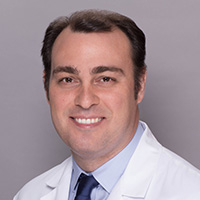
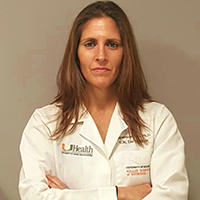
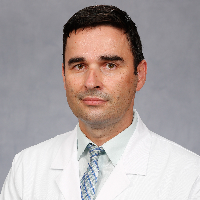
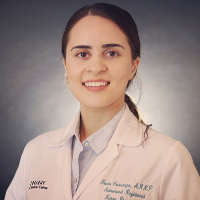

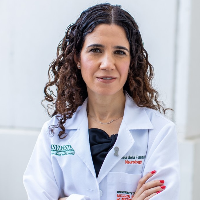
.png)
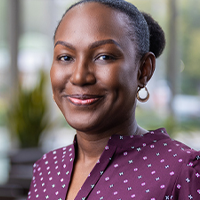
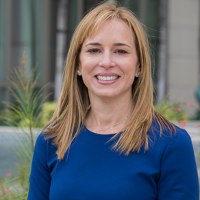
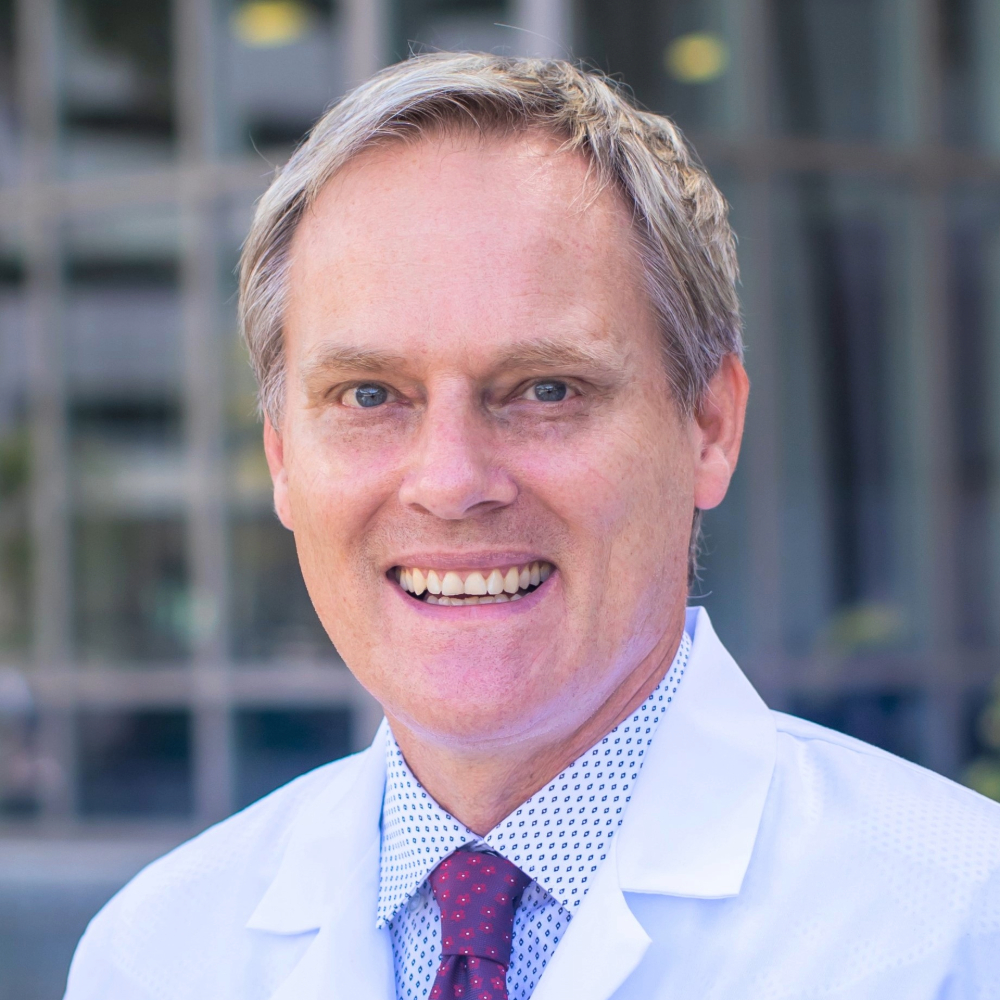
Dr. Landgren is a board-certified Hematologist-Oncologist who specializes in multiple myeloma; smoldering myeloma; monoclonal gammopathy of undetermined significance (MGUS); and related plasma cell disorders. His research approaches include detailed genomic characterization of tumor cells and cells in the bone marrow microenvironment, partnered with novel drug development, and advanced methods to rule out minimal residual disease (MRD). Beyond traditional clinical criteria for complete remission, Dr. Landgren has developed several novel strategies designed to identify minimal residual disease (MRD) detection post-therapy using cell-, molecular-, and imaging-based methods. The overall goal with these studies is to identify the last remaining tumor cells, to comprehensively characterize them and define novel treatment targets, and to use this knowledge to seek a cure for myeloma. Dr. Landgren leads the clinical and research operations of the Myeloma Program at Sylvester Comprehensive Cancer Center at University of Miami.
Dr. Landgren is renowned for his contributions to myeloma clinical care and research. He has a strong track-record in drug development, has served as PI for a large number of clinical trials, designed and conducted a series of studies to define biological mechanisms of transformation from myeloma precursor disease to multiple myeloma, is a frequent speaker and faculty member for national and international meetings on myeloma and hematologic malignancies, is a member of several editorial boards, serves as reviewer for grants and for several high-impact journals, and is the leader of research governance committees and multi-disciplinary research teams. He has been recognized as Chief of Myeloma at three major institutions: Sylvester Comprehensive Cancer Center at the University of Miami, Memorial Sloan Kettering Cancer Center, and the National Cancer Institute at the National Institutes of Health."
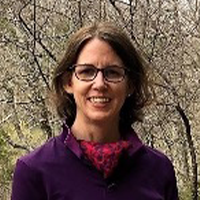
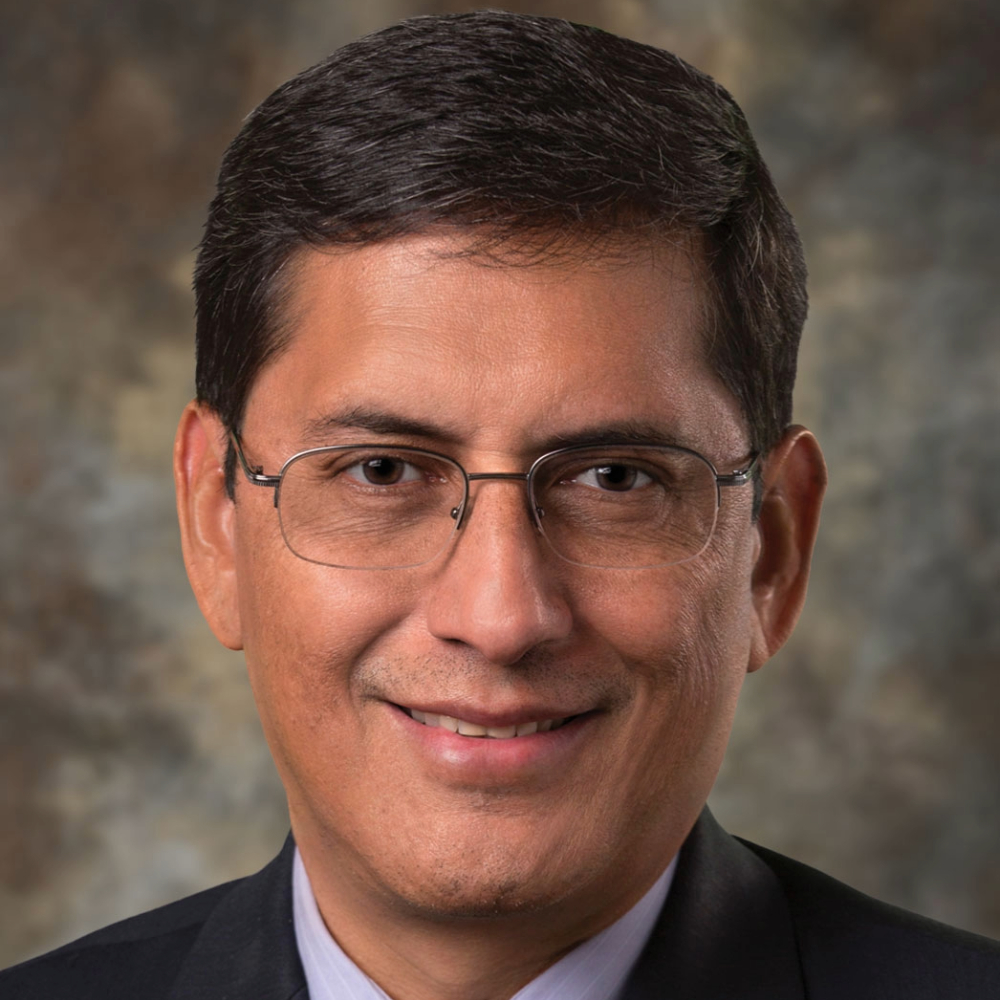
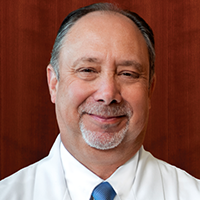
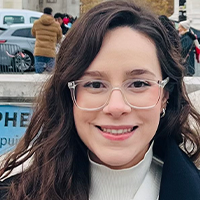
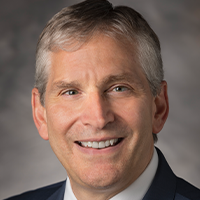

.png)

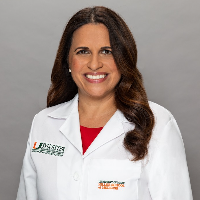
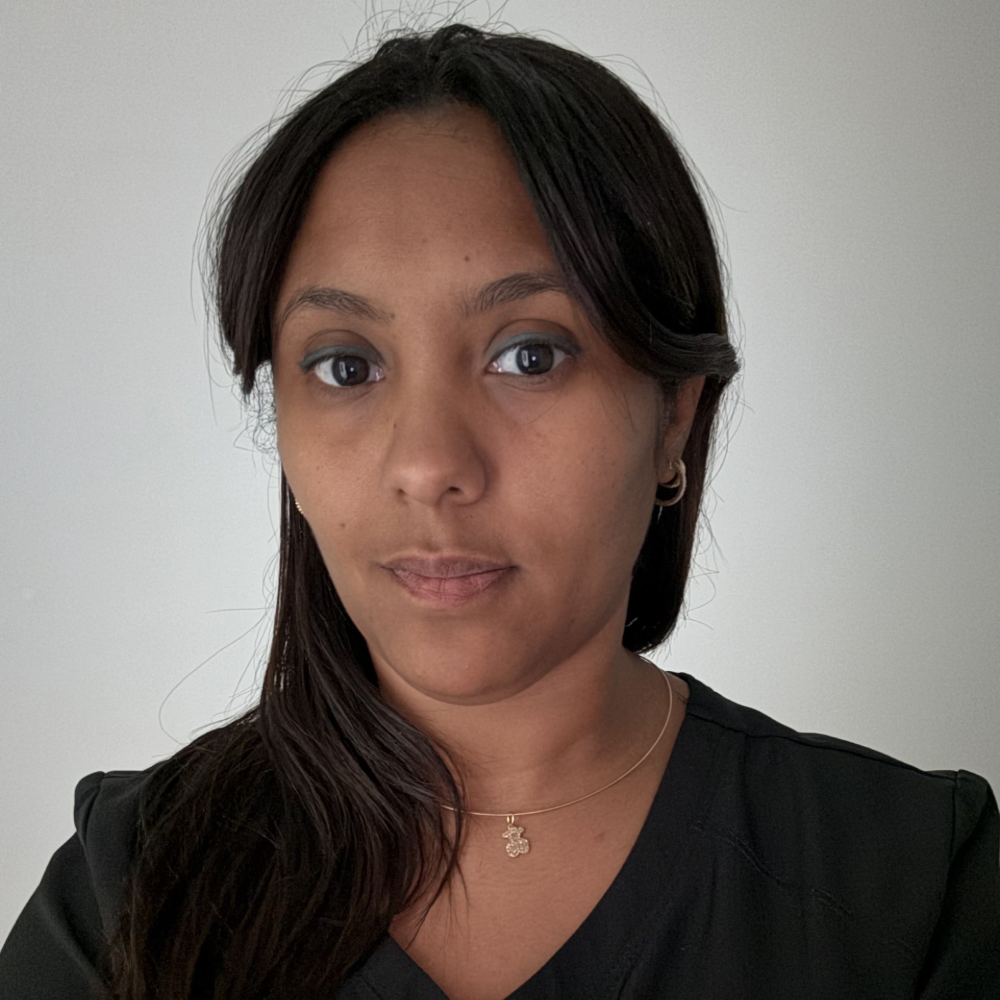
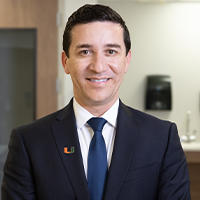
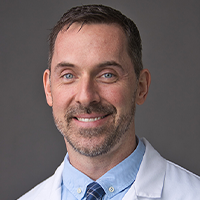
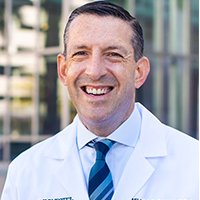
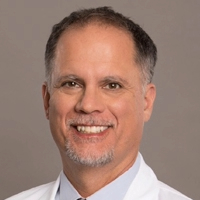
Dr. Trent earned his MD and PhD in cancer biology from The University of Texas Health Science Center, where he also completed a residency in internal medicine. He then completed a fellowship in medical oncology at The University of Texas MD Anderson Cancer Center while serving as chief fellow. Prior to joining the University of Miami, Sylvester Comprehensive Cancer Center, he held an appointment as Associate Professor of Medicine in the Department of Sarcoma Medical Oncology, Division of Cancer Medicine at MD Anderson Cancer Center.
Dr. Trent’s interests are in the clinical and translational research of sarcomas, direct care of sarcoma patients, and education about sarcoma. As Associate Director for Clinical Research, his goal is to help Sylvester faculty develop clinical trials that provide clinically effective and scientifically exciting therapy to cancer patients in South Florida and beyond.
The major focuses of his clinical, educational, and research efforts are gastrointestinal stromal tumor (GIST), chondrosarcoma, and other sarcomas. The major efforts of Dr. Trent’s research focus on understanding the mechanisms of action and resistance of imatinib in GIST and other sarcomas while striving toward improved therapeutic options. His work involves the use of novel preoperative/postoperative clinical trials, prospectively acquired tumor tissue, cell lines, and archival tissue, as well as collaborations with disciplines such as the genomics facility, surgical oncology, pathology, radiology, and interventional radiology."


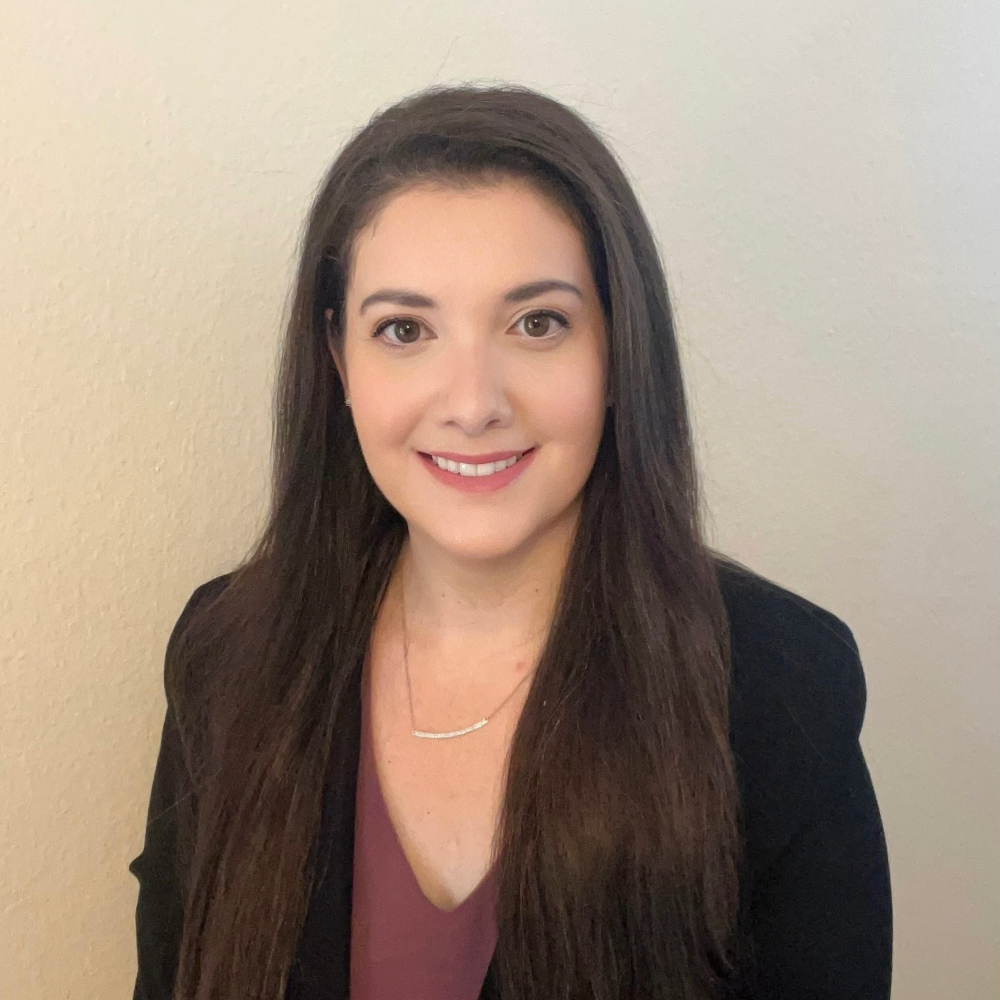
With over a decade of clinical research experience and as an Advanced Practice Provider (APP), Christopher Otero is a respected figure in healthcare. Christopher Otero has contributed to research across stem cell, endocrinology, oncology, and beyond, playing a pivotal role in designing and managing clinical trials while ensuring top-notch patient care.
Christopher Otero possesses a profound understanding of research methodologies and regulatory requirements, having led teams and fostered collaborations to address healthcare challenges. As a Clinical Research Professional, he engages on the education and training of several sub-investigators involved in clinical research studies in both In-patient and Out-patient setting.
In his current role as Clinical Research APP Manager, Christopher Otero continues to drive healthcare innovation, bridging the gap between research and practice. Christopher Otero dedication to improving patient outcomes and shaping the future of healthcare with a focus in Clinical Research is unwavering .
Ms. Ward is a dedicated, experienced professional skilled in research, analysis, and compliance, with a strong background in regulatory affairs within the healthcare sector. She holds a Bachelor of Health Services Administration from Florida International University and a Bachelor of Arts in Anthropology from the University of Central Florida. Additionally, she has been a Certified Clinical Research Professional (CCRP) since 2023.
Ms. Ward has been working in Clinical Research Services at the University of Miami Sylvester Comprehensive Cancer Center for six years. Currently, she serves as the Study Start-Up Manager of Regulatory Support, a role she has held since November 2022. In this position, she is responsible for overseeing the Study Start-up team, including the timely submission of studies through the activation process, identifying pipeline challenges and implementing solutions, and assisting with the development of new regulatory policies and procedures. Prior to this, she was the SCCC Study Start-Up Team Lead, where she managed the study start-up portfolio, coordinated regulatory document submissions to the IRB, and developed and maintained study start-up templates. She also served as a Regulatory Specialist at the University of Miami, assisting with clinical trials and working with internal and external stakeholders to ensure timely study activation.
Before coming to the University of Miami, Ms. Ward was a Compliance Analyst at UniPhy ACO, LLC, where she drafted policies, developed audit effectiveness, and provided subject matter expertise on compliance issues. Her earlier experience includes roles as an In-House Provider Relations Representative at UniPhy ACO, LLC, a Senior Micrographics Technician at MDCPS-Department of Food and Nutrition, and a part-time employee at Beacon Health Options.
Ms. Jackson is a distinguished professional in her field, bringing over 4 years of oncology experience to her current role as a Hematology APRN in phase 1 clinical research. With a strong foundation in patient care, data collection, and protocol development, she plays a critical role in advancing novel therapies for patients with AML, ALL, MDS, and myelofibrosis. Credentialed in bone marrow biopsy procedures, she ensures optimal patient care and accurate diagnostic outcomes. Her deep understanding of regulatory requirements and institutional guidelines, coupled with a commitment to research integrity, has enabled her to provide optimal patient care while patients are enrolled in clinical research trials.
Dr. Chauhan leads the University of Miami Neuroendocrine Cancer Program and is national PI on several investigator-initiated neuroendocrine cancer theranostics clinical trials. Early in his career he completed a Cancer Therapy Evaluation Program physician externship at the NCI that focused on designing clinical trials and clinical research projects. He has authored over 80 scientific publications and book chapters and has received career development awards from the NCI. He also serves on American Joint Committee on Cancer and ASCO NET guideline committees and is an active member of the North American Neuroendocrine Tumor Society communication committee.
Ms. Baldwin is a Bioresearch Monitoring Specialist as a Certified Investigator for the Office of Bioresearch Monitoring Inspectorate (OBMI) within the Office of Inspections and Investigations (OII) in the Food and Drug Administration (FDA). Throughout her FDA career, she has conducted domestic and international inspections, which have resulted in regulatory actions, to ensure human and animal subjects are protected and that data are reliable.
Ms. Connolly is a strategist and storyteller who specializes in communication and public engagement across sectors. With a background in community organizing, campaigns, and the arts, she has advised universities, biotech startups, foundations, elected officials, and arts organizations on strategy, program development, and creative outreach.
Ms. Connolly has helped scholars, executives, and advocates translate complex work into compelling public narratives—through TED-style talks, persuasive op-eds, sharp slide design, and other storytelling tools. Her higher education clients include the George Washington University, University of Miami, Princeton, Harvard, and Brown, where she has worked across Offices of the President, Advancement, Medical, Communications, Alumni Relations, Career Planning, Civic Engagement, and academic units. At Brown’s Swearer Center for Public Service, she served as Senior Associate Director, contributing to nationally recognized civic engagement efforts. Her work in Advancement has earned multiple CASE awards.
She spent a decade leading external affairs for a nationally acclaimed K–8 school focused on supporting low-income families, and continues to advocate for immigrant communities in Rhode Island.
In politics, Ms. Connolly has helped win tough local elections and enjoys coaching first-time BIPOC and women candidates. She has worked extensively with the Providence City Council to promote transparency and public understanding of municipal governance and budgeting, and served as an advisor to the office of Congressman David Cicilline.
As an advocate for the arts, she led exhibition master planning for the Providence Children’s Museum, supported the groundbreaking Newark Museum of Art, and helped grow the retailer Craftland, a leader in the handmade movement. She maintains her own studio practice.
A believer in the power of strong community networks, she advised diverse organizations from the global advocates of Idealist.org and the historians of John Nicholas Brown Center for Public Humanities to the skateboarders of Adrian Hall Way.
Dr. Dey’s major focus is to facilitate the development of markers and validation of innovative in vitro diagnostics to improve clinical outcomes for cancer patients. Her current role in the Diagnostics Evaluation Branch is to foster research into in-vitro diagnostics as prognostic markers to improve tumor classification and predictive markers to improve response to therapy. She is also responsible for the scientific oversight of a portfolio of investigator-initiated research grants and involved in the reviews of the correlative science aspects of protocols for NCI’s clinical trials program. She oversees and manages cooperative agreement grants for the Cancer Diagnosis Program on Assay Validation of High-Quality Markers for Clinical Studies in Cancer. Dr. Dey possesses a doctorate in Biochemistry with subsequent post-doctoral research experience at Lab of Pathology, National Cancer Institute, National Institutes of Health developing high-throughput molecular techniques to analyze human tissue samples. Dr. Dey joined the Cancer Diagnosis Program in 2016 and is an experienced scientific program officer who has supported project management offices in both the DoD and NIH spaces.
Dr. Chiuzan is an Associate Professor in the Institute of Health System Science and Co-Lead of the Data Science and Statistics Core, Quantitative Intelligence at Northwell Health, NY. Before that she was an Assistant Professor in the Department of Biostatistics at Mailman School of Public Health, Columbia University. Her research area focuses on development of early-phase clinical trial designs (applications to targeted and immunotherapeutic agents) and leveraging real-world evidence to improve trial outcomes and increase diversity of populations in clinical trials.
She is passionate about teaching biostatistics in health sciences, and she has a strong record of mentoring MS students, MD/PhD students, and clinical fellows (five recipients of the ASCO Young and Career Development Awards). She has held leadership positions as the President of the American Statistical Association (New York City Chapter) and Board Member of the Society for Clinical Trials. Dr. Chiuzan is also a faculty and organizer member of the Society for Immunotherapy of Cancer (SITC) Clinical Immuno-Oncology Network (SCION) Workshop.
Gayle Jameson is a Nurse Practitioner who has cared for adults living with cancer for more than 40 years. She is certified as an Advanced Oncology Nurse (AOCN) and is especially interested in the care of patients with pancreatic cancer, early cancer drug development and symptom management.
In her role as Clinical Investigator at the Oncology Clinical Trials Department, HonorHealth Research Institute (HRI) in Scottsdale, Arizona, she has been Principal Investigator (PI) on multiple phase I, II, and investigator-initiated studies and Sub-investigator on more than 100 phase I and II anti-tumor clinical trials. She incorporates translational science in clinical trial designs by working with bench science colleagues at Translational Genomics Institute (TGEN), and as a member of the SU2C Pancreatic Cancer Dream Team. Gayle also was the site Principal Investigator on an international study that led to the approval of Onivyde™ plus 5FU and leucovorin for patients with metastatic pancreatic cancer. She published a study in JAMA Oncology 2020 that demonstrated significant improvement in the overall survival in patients with advanced pancreatic cancer. Gayle has presented her work nationally and internationally. As a pioneer of the role of an NP as a Clinical Investigator in early Cancer Drug Development, she served as Founder and Co-Director of the “Inaugural Oncology Nurse Practitioner Clinical Investigator Intensive Course,” a collaborative project of HRI and City of Hope, held at HonorHealth in 2018 and repeated in 2020. Gayle has also been honored as a recipient of the Oncology Nursing Society’s 2019 Lifetime Achievement Award, and the 2020 Luminary Award in GI Cancers by The Ruesch Center for the Cure of Gastrointestinal Cancers at Georgetown Lombardi Comprehensive Cancer Center.
As Director of the Biostatistics Core, Dr. Kim is responsible for providing support for protocol development, review and analysis for clinical studies, and statistical expertise for research collaborations with Cancer Center investigators in all disciplines across the spectrum of basic, clinical and population sciences. Prior to joining UCSF, Dr. Kim directed the Biostatistics Unit for the Cancer and Blood Diseases Institute at Cincinnati Children’s Hospital Medical Center. Notable collaborations included Children's Tumor Foundation’s Neurofibromatosis (NF) Therapeutic Consortium that builds up a preclinical pipeline for screening candidate drug therapies in animal model systems. Dr. Kim also developed a research program in novel clinical trial designs that incorporates biomarker information and aims to optimize patient benefits. With her expertise in trial design, she has served on the faculty for the AACR Methods in Cancer Biostatistics Workshop and the Winn Diversity in Clinical Trials Career Development Award program.
Dr. Kim is also Professor of Biostatistics in the Department of Epidemiology and Biostatistics, continuing academic contributions to the field of biostatistics and providing biostatistical support broadly on campus. Trained as a mathematical statistician, Dr. Kim is an independent statistical method researcher with research interest in non- and semi-parametric statistics, and longitudinal and survival data analysis. She has been supported by NIH and National Science Foundation (NSF) awards, and published in prestigious journals such as the Annals of Statistics and the Journal of the American Statistical Association. Her recent research focuses on causal inference using structured data for comparative effectiveness research and patient-centered outcomes research. Supported by the Patient-Centered Outcome Research Institute (PCORI), Dr. Kim and her research team study optimal handling of the complex data structure both in the treatment selection decision process and the outcome analysis to minimize bias and maximize efficiency of the causal inference. Application studies of the project include pediatric Crohn’s disease (CD) and kidney transplant study.
As NCI Program Director, Dr. Lukinova reviews the correlative science aspects in ETCTN early phase clinical trials with the specific focus on biomarkers in immunotherapy. She directs and leads multiple research projects on biomarkers in drug development and performs as an active member of Biomarker Review Committee and multiple working groups for development of new cancer treatments and diagnostics. Prior to joining NCI, she served as Associate Director in a private biotech company holding responsibilities in product development for clinical diagnostics. She led a CLIA-certified contract service laboratory, where she validated quantitative clinical assays for highly specific biomarkers in non-alcoholic fatty liver disease and for monitoring levels of 5-fluorouracil in plasma, developed and filed a patent on a new diagnostic assay for Lyme disease, led proof-of-principle studies for an assay to detect blood levels of new oral anticoagulants. Her PhD thesis on early mechanisms of blood coagulation included clinical assay development to detect pathologies in blood clotting and fibrinolysis. After completing postdoctoral training in molecular genetics at The University of Pennsylvania and publishing her findings in Nature and Genetics, she transitioned to biotech industry with the focus on clinical assay development under different platforms and technologies.

